2025
Cheryl Brandenburg, Ph.D.
Cheryl Brandenburg is a postdoctoral associate in the laboratory of Roy V. Sillitoe at Baylor College of Medicine. She received her undergraduate and master of science degrees from the University of Wisconsin, La Crosse.
Read More
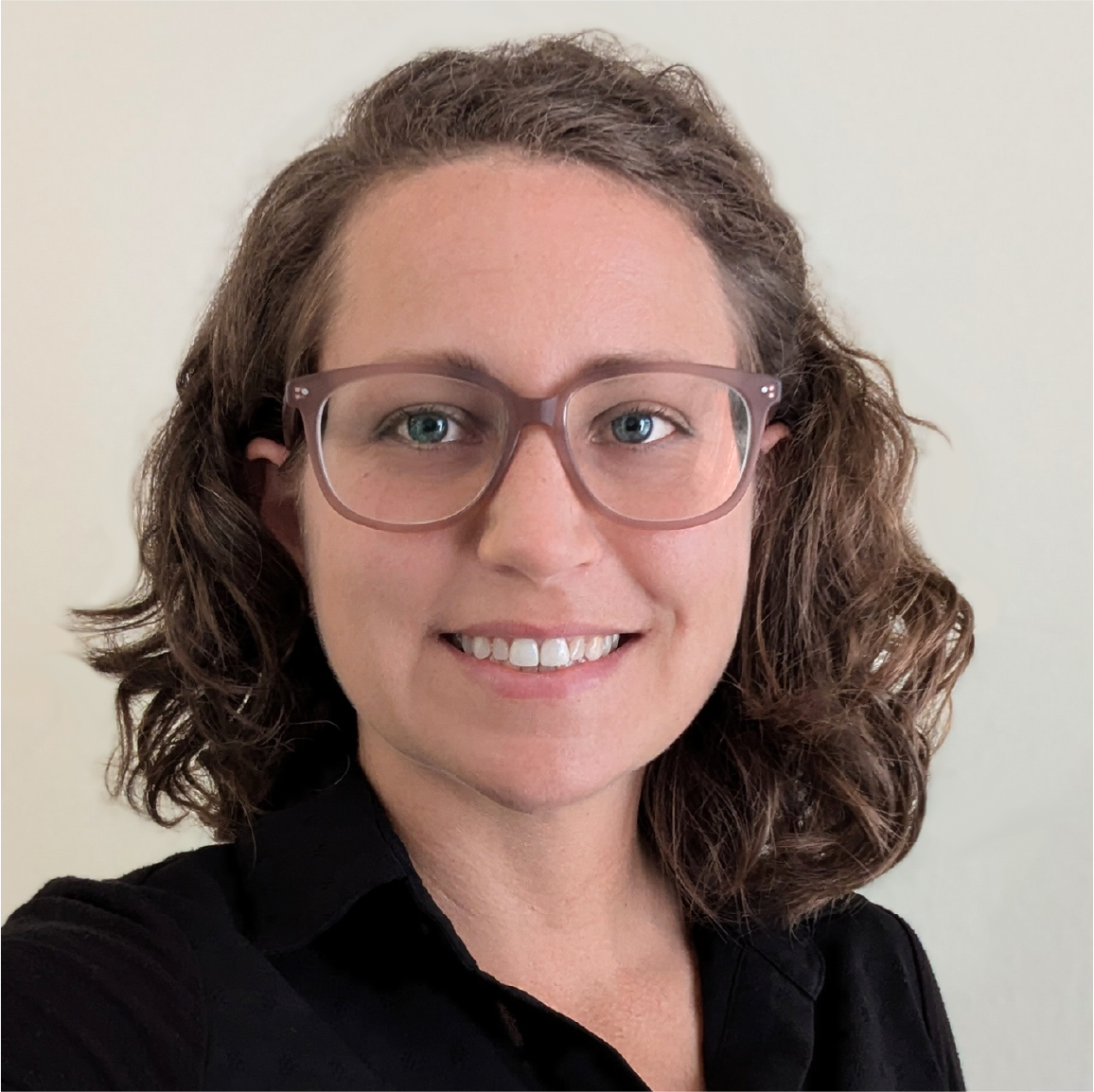
Marissa Co, Ph.D.
Marissa Co is a postdoctoral fellow in the Department of Molecular and Medical Genetics and the Vollum Institute at Oregon Health & Science University. She received a B.S. in Neuroscience from the University of Texas at Dallas and a Ph.D. in neuroscience from the University of Texas Southwestern Medical Center. She aims to elucidate the molecular and cellular mechanisms underlying heterogeneity in autism, focusing on transcriptional regulators and their downstream targets.
Read More
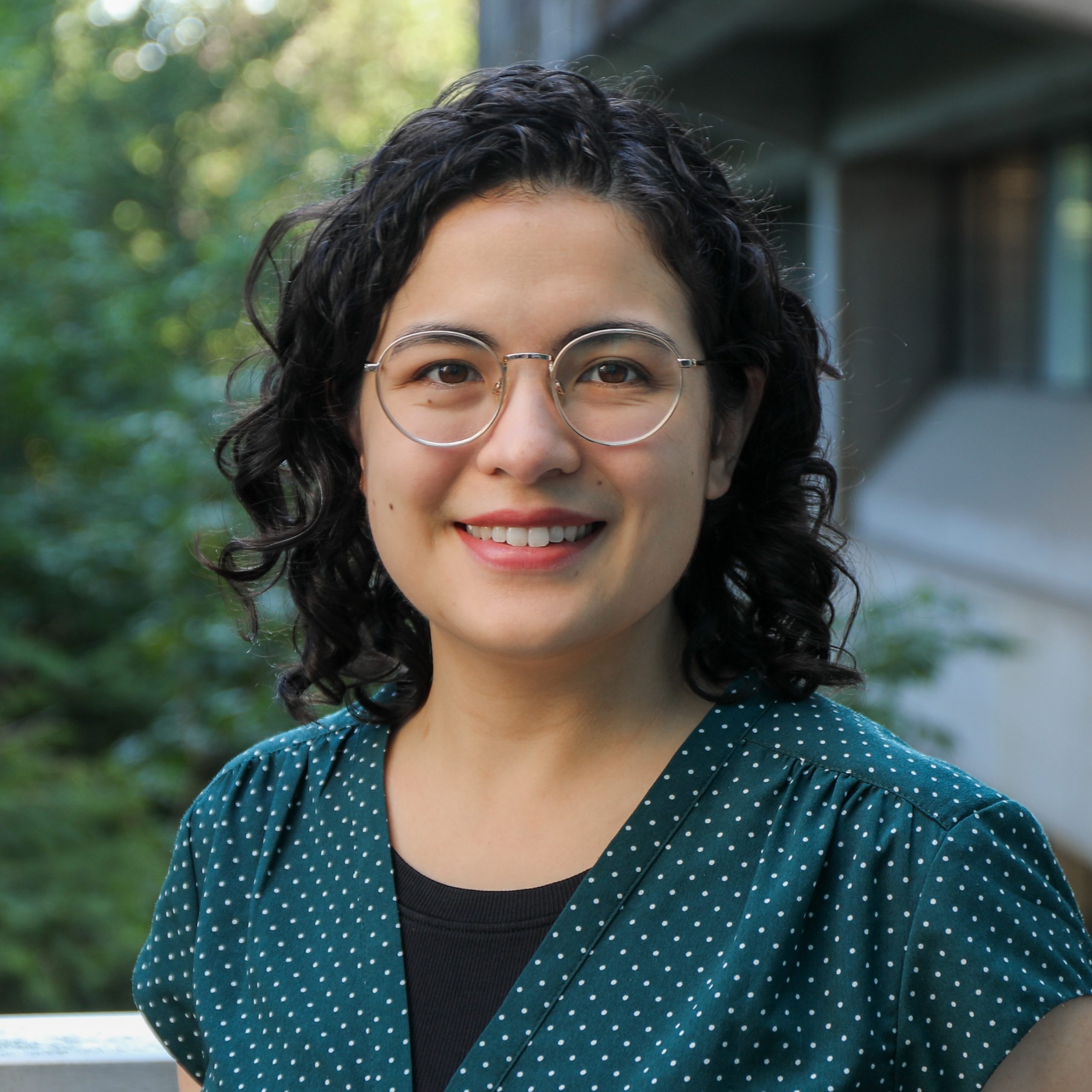
Jingwen Li, Ph.D.
Jingwen Li is a postdoctoral fellow in the Department of Psychology at University of California, San Diego. She received her doctorate in physics with a neuroscience concentration at the University of Arkansas, where she worked with Woodrow Shew. Her doctoral study examined the population dynamics shaped by excitation/inhibition (E/I) balance during natural behavior and their alterations in Rett syndrome (RTT). Using network modeling and large-scale recordings in freely moving rats, she revealed how proper E/I tuning enables flexible cortical states and identified neural mechanisms linking E/I imbalance to motor dysfunction in RTT.
Read More
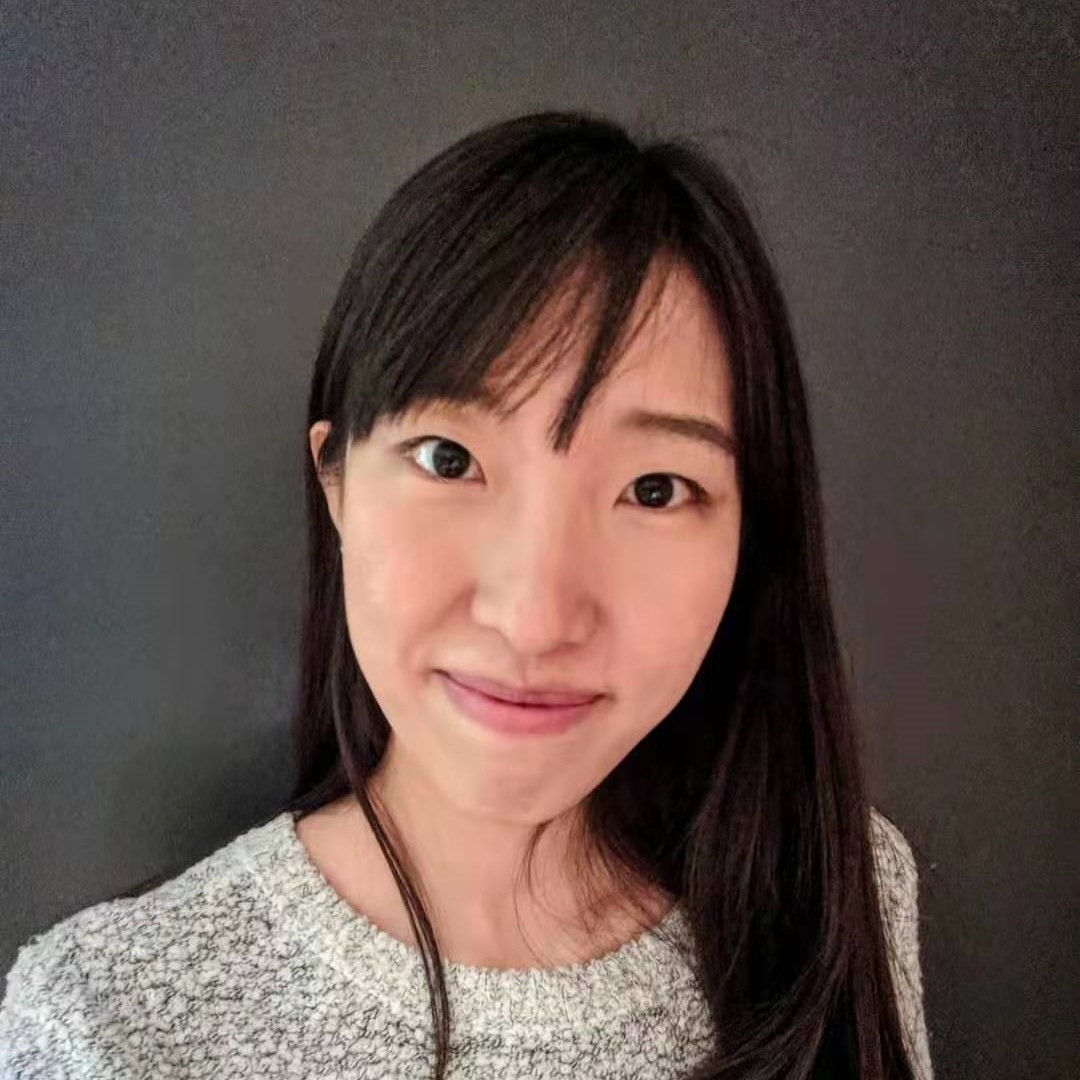
Hannah R. Monday, Ph.D.
Hannah R. Monday is a postdoctoral fellow in the Department of Neuroscience at the University of California, Berkeley (UC Berkeley). She received a bachelor of science degree in neuroscience and behavior from the University of California, Santa Cruz and a doctorate in biomedical science from Albert Einstein College of Medicine, where she trained with Pablo Castillo.
Read More

Keng Ioi Vong, Ph.D.
Keng Ioi Vong is a postdoctoral fellow in the laboratory of Joseph Gleeson at the University of California, San Diego. He received his bachelor and doctorate degree in cell and molecular biology from the Chinese University of Hong Kong under supervision of Kin-Ming Kwan. His graduate work focused on the cellular and molecular cues that established the cerebrospinal fluid niche during embryonic brain development.
Read More
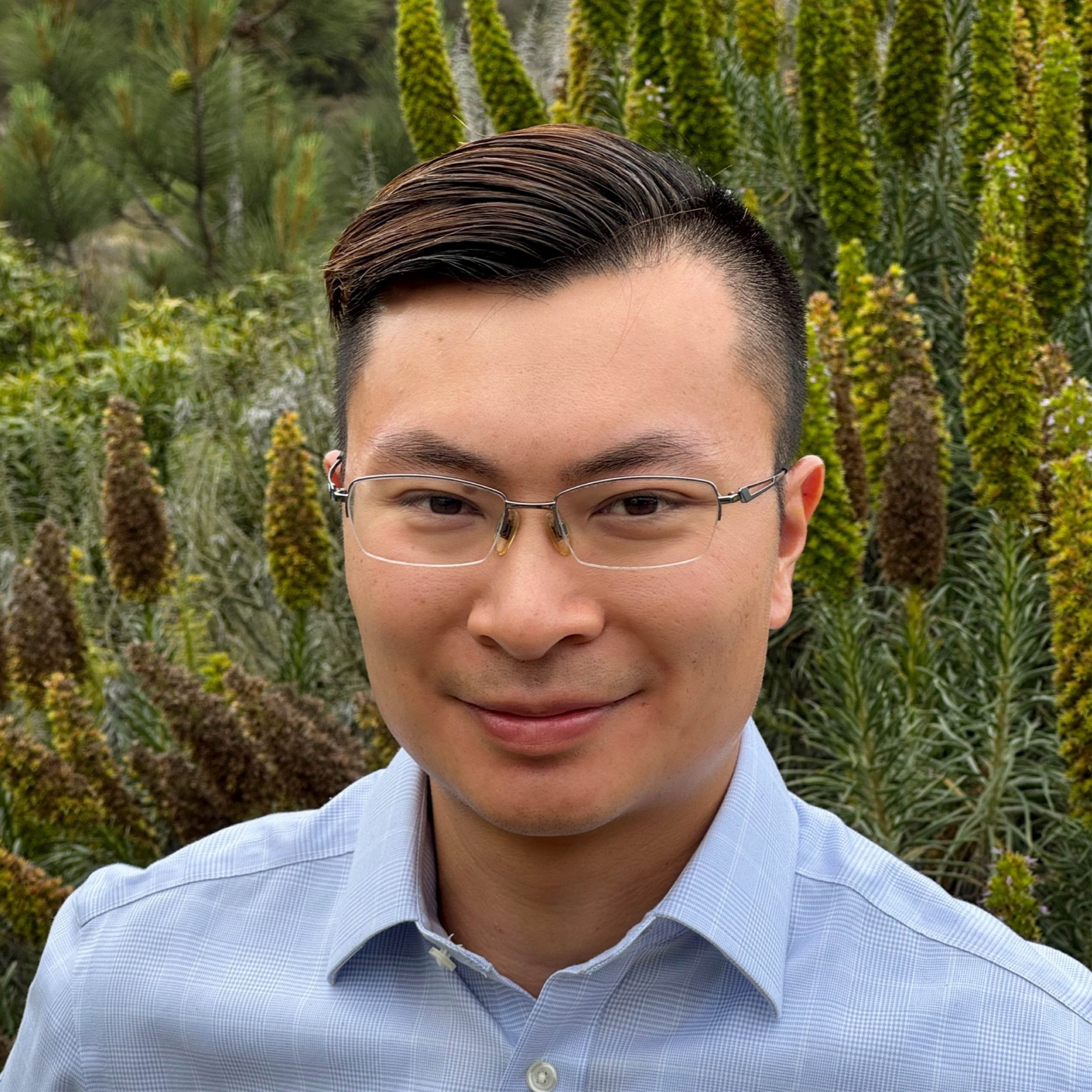
Zhilei Zhao, Ph.D.
Zhilei Zhao is a Klarman postdoctoral fellow in the Department of Neurobiology and Behavior at Cornell University, working with Jesse Goldberg. He earned his B.S. in life sciences from Peking University and his Ph.D. in evolutionary neuroscience from Princeton University.
Read More
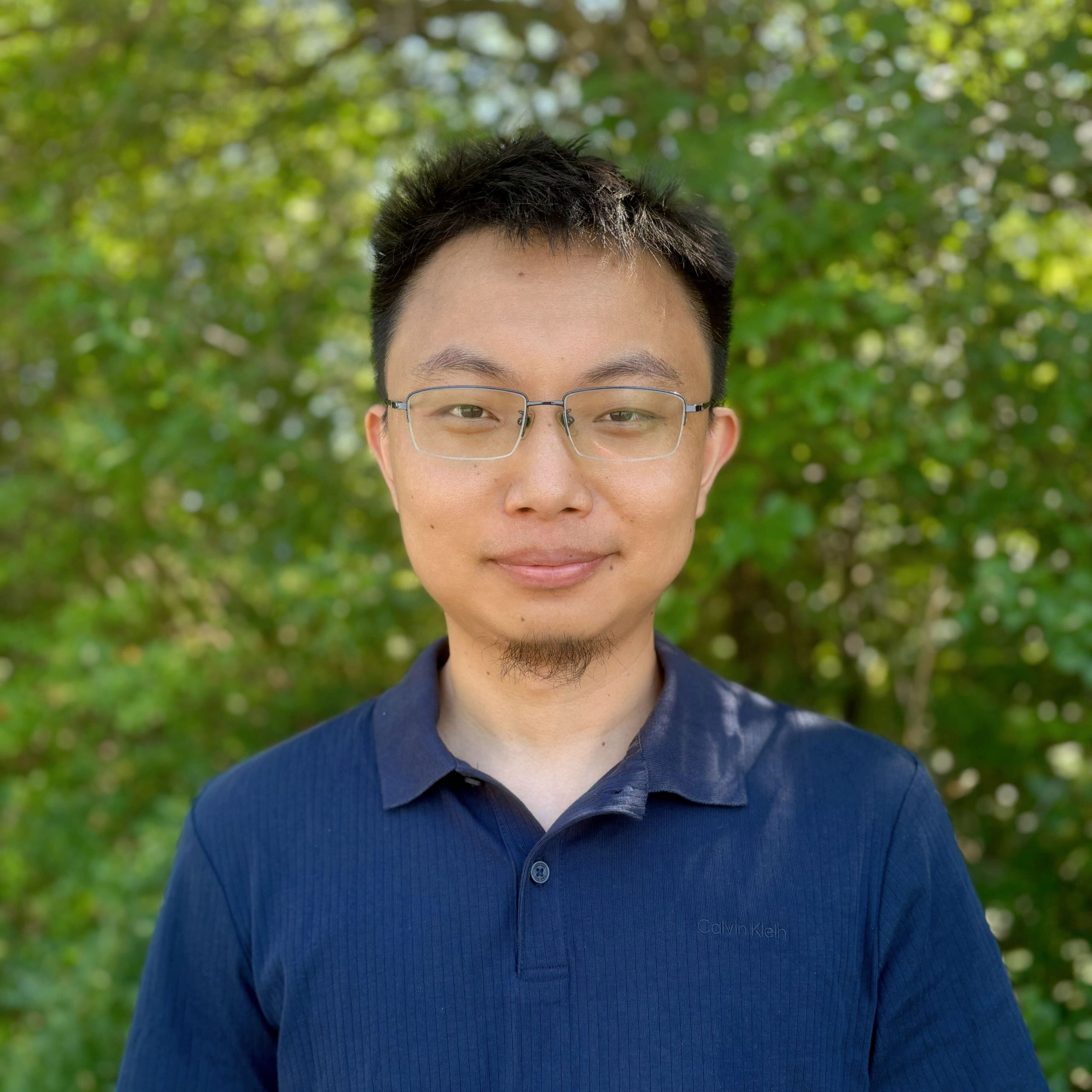
2024
Manon Bohic, Ph.D.
Manon Bohic is a postdoctoral fellow at Rutgers University working with Victoria Abraira. She received her B.Sc. and M.Sc. in developmental biology and her Ph.D. in neuroscience from Aix-Marseille University, France. For her Ph.D. work with Aziz Moqrich at the Marseille Developmental Biology Institute (IBDM), she studied the molecular differentiation of gentle touch C-Low Threshold Mechanoreceptor skin sensory neurons and their role in pain modulation.
Read More

Amanda Buch, Ph.D.
Amanda Buch is a postdoctoral fellow in the Psychiatry Department at Weill Cornell Medicine, Cornell University. She obtained her B.A. in Biophysics from Columbia University in 2014 and her Ph.D. in Neuroscience from Weill Cornell Graduate School of Medical Sciences, Cornell University.
Read More

Hungoo Lee, Ph.D.
Hungoo Lee is a research associate in Jeannie Lee’s laboratory at Mass General Hospital / Harvard Medical School. He has been studying molecular mechanisms of epigenetic abnormalities by the expanded long tandem repeats in Fragile X syndrome. He earned his Ph.D. in epigenetics and molecular biology in the laboratory of Vincenzo Pirrotta, where his dissertation work focused on the genome-wide epigenetic regulatory roles of Polycomb group proteins and Trithorax group proteins especially at the intergenic regions.
Read More

Mari Sepp, Ph.D.
Mari Sepp is a postdoctoral scientist at the Center for Molecular Biology of the University of Heidelberg. She grew up in Estonia, graduated from the University of Tartu and received her doctoral degree from Tallinn University of Technology.
Read More

Chenjie Shen, Ph.D.
Chenjie Shen received his doctoral training at Zhejiang University under the supervision of Xiaoming Li and co-advised by Hailan Hu. He is trained in pharmacology and system neuroscience. His Ph.D. research focused on elucidating the circuit mechanisms underlying neuropsychiatric disorders and identifying the mechanisms of action of psychedelic drugs in treating these conditions.
Read More

Cleyton Sobrinho, Ph.D.
Cleyton R. Sobrinho is a research assistant professor in the Department of Physiology and Neurobiology at the University of Connecticut. He did his undergraduate studies at the University of Franca in Brazil before earning a Ph.D. in Physiology from the University of São Paulo.
Read More

Qianqian Wang, Ph.D.
Qianqian Wang is a postdoctoral fellow in Philip A. Beachy’s laboratory at the Institute for Stem Cell Biology and Regenerative Medicine at Stanford University. She holds a B.S. in Polymer Science & Engineering and a B.A. in English language and literature from Zhejiang University and earned her Ph.D. in Bioengineering from the University of California, Los Angeles (UCLA).
Read More

2023
Ryan Ash
Ryan Thomas Ash is an instructor in the Department of Psychiatry and Behavioral Sciences at Stanford University. He studied cortical circuit dysfunction in autism while completing his M.D./Ph.D. at the Baylor University College of Medicine and postdoc at Harvard Medical School, where he was mentored by Stelios Smirnakis and Huda Zoghbi. Ash found evidence for abnormally increased stability of cortical circuits in the MECP2 duplication syndrome mouse model of autism, first at the level of synaptic connections during his doctorate, and then at the level of neuronal population activity during his postdoc. This work suggests that increased neural circuit stability could contribute to behavioral inflexibility in patients with autism.
Read More

Marito Hayashi
Marito Hayashi is a postdoctoral fellow in the lab of Stephen Liberles at Harvard Medical School. He received his undergraduate degree from International Christian University. He completed his doctoral training with Samuel Pfaff at the Salk Institute and the University of California, San Diego, where he studied the development, organization and function of spinal cord neurons underlying movement control. As a postdoctoral fellow, Hayashi studies the sensory mechanisms and functional organization of the gut-brain axis, focusing on sensory epithelial cells of the gastrointestinal tract.
Read More

Ugne Klibaite
Ugne Klibaite is a postdoctoral fellow at Harvard University. She received her B.S. in biomedical engineering at Columbia University and completed her Ph.D. in quantitative and computational biology at Princeton University. In her doctoral work with Joshua W. Shaevitz, she employed an unsupervised biophysical approach to explore the structure of fruit fly interaction as well as to phenotype mouse models of neurodevelopmental disorders. In her postdoctoral training with Bence Ölveczky, Klibaite is developing novel tools to capture spontaneous social interaction in rats. By combining high-resolution 3D postural tracking, neural measurements and new analytical tools for behavioral quantification she aims to characterize social deficits across different monogenic rat models of autism spectrum disorder and explore their neural underpinnings.
Read More

Daniel O’Shea
Daniel J. O’Shea is a postdoctoral scholar at Stanford University. He received his B.S.E. from Princeton University and Ph.D. from Stanford University. He completed his doctorate in the laboratory of Krishna V. Shenoy, where he studied the neural population dynamics that establish robust and flexible feedback control in macaques. In his postdoctoral research with Shenoy and Karl Deisseroth, O’Shea has used electrophysiology, optogenetic and electrical perturbations, two-photon imaging, and computational techniques to dissect the neural computations that support the acquisition, execution and maintenance of a broad repertoire of motor skills.
Read More

Daniel Pederick
Daniel Pederick is a postdoctoral fellow at Stanford University. He earned his Ph.D. in biosciences at the University of Adelaide in Australia, where he completed his doctoral work in the laboratory of Paul Thomas. His work focused on understanding the molecular mechanisms underlying the unique X-linked inheritance pattern of PCDH19 epilepsy.
Read More

Greta Pintacuda
Greta Pintacuda holds a D.Phil. in molecular and cell biology from the University of Oxford. During her time at Oxford, she conducted research in the laboratory of Neil Brockdorff, where she leveraged embryonic stem cells models to study the interplay of different molecular pathways involved in X-chromosome inactivation during the early stages of development. After completing her doctoral studies, Pintacuda pursued postdoctoral training at the Broad Institute and Harvard University, working in the labs of Kevin Eggan and Kasper Lage. Her postdoctoral research involved the integration of human genetics, human neural cell models and biochemistry to investigate the molecular mechanisms underlying neuropsychiatric and neurodevelopmental conditions such as autism, schizophrenia and post-traumatic stress disorder.
Read More

Menglong Zeng
Menglong Zeng received his doctoral training in Mingjie Zhang’s lab at the Hong Kong University of Science and Technology, where he applied biochemistry and structural biology to investigate how synaptic proteins interact to regulate synapse function. Specifically, he discovered that protein complexes in the postsynaptic density undergo a biophysical process named liquid-liquid phase separation, which allows synaptic proteins to self-assemble into membrane-less protein condensates to exert their synaptic functions with spatiotemporal precision, as a novel molecular mechanism underlying synapse formation and plasticity.
Read More

2022
Cheen Euong Ang, Ph.D.
Cheen Euong Ang is currently a postdoctoral fellow in the lab of Xiaowei Zhuang at Harvard University where he focuses on developing transcriptome and epigenome imaging methods. He received his B.Sc. from McGill University and his Ph.D. from Stanford University. His Ph.D. thesis work in the lab of Marius Wernig centered on developing protocols for neuronal reprogramming and applying them to model neuropsychiatric diseases.
Read More
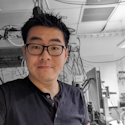
Anila D’Mello, Ph.D.
Anila D’Mello is a postdoctoral fellow at the McGovern Institute for Brain Research at the Massachusetts Institute of Technology working with John Gabrieli. She received her B.A. in psychology from Georgetown University, and completed her Ph.D. in behavior, cognition and neuroscience at American University. D’Mello’s doctoral and postdoctoral research has leveraged neuroimaging, neuromodulation and behavioral experimentation to understand cerebellar contributions to language, social communication and cognition in individuals with and without autism spectrum disorders.
Read More

Ryoma Hattori, Ph.D.
Ryoma Hattori is an assistant project scientist at the University of California, San Diego. He received his B.S. from the University of Tokyo and A.M. and Ph.D. from Harvard University. He completed his doctoral thesis work in the laboratory of Takao K. Hensch, where he studied the developmental dynamics of multisensory interactions in the mouse visual cortex and related changes in mouse models of autism.
Read More

Leanna M. Hernandez, Ph.D.
Leanna Hernandez is a postdoctoral fellow at the University of California, Los Angeles (UCLA). She earned her Ph.D. in neuroscience in the laboratory of Mirella Dapretto, where her dissertation work used magnetic resonance imaging to characterize the impact of genetic variability in the OXTR gene on neurobiological heterogeneity and sex-differences in autism spectrum disorder (ASD).
Read More

Katie Matho, Ph.D.
Katie Matho is a research investigator at Cold Spring Harbor Laboratory. She received her B.S. from Union College, and her M.S. and Ph.D., both in neuroscience, from Sorbonne Université in Paris, France. For her Ph.D. work with Jean Livet at Institut de la Vision in France, Matho mapped the microscale connectivity of auditory circuitry in the brainstem, in the emerging field of connectomics. She employed a multicolor “barcoding” strategy called “Brainbow,” whereby neurons express random combinations of fluorescent proteins, facilitating single-cell, large-volume image analysis. This technique enabled her to identify previously unknown instances of converging inputs within this circuit where 1:1 connectivity is thought to be the rule.
Read More

Martin Munz, Ph.D.
Martin Munz is a postdoctoral fellow in the lab of Botond Roska at the Institute of Molecular and Clinical Ophthalmology Basel. He is interested in understanding the role of activity during the inception of cortical circuits. Specifically, he developed imaging, molecular and electrophysiological techniques to allow the in vivo observation and manipulation of developing embryonic cortical circuits in mice. He plans to describe cell type-specific changes that occur in mice with autism-related mutations during embryonic development.
Read More

Michael Segel, Ph.D.
Michael Segel is a postdoctoral fellow at the Broad Institute of MIT and Harvard. He received his A.B. from Harvard College in human developmental and regenerative biology and his Ph.D. in clinical neuroscience from the University of Cambridge. For his doctoral thesis in the lab of Robin Franklin, he explored the molecular mechanisms underpinning the aging of glia in the central nervous syste
Read More

2021
Gabriella Boulting, Ph.D.
Gabriella Boulting earned a Ph.D. in biochemistry in the laboratory of Kevin Eggan in the Stem Cell and Regenerative Biology Department at Harvard University, where she focused on the application of human pluripotent stem cells (PSCs) to study neurogenerative disease. She developed methods to produce human spinal motor neurons in vitro, generated a vetted panel of human PSC lines for in vitro amyotrophic lateral sclerosis (ALS) disease modeling and uncovered disease phenotypes in motor neurons derived from induced PSCs from individuals with ALS.
Read More

Alexander Li Cohen, M.D., Ph.D.
Alexander Li Cohen is a physician-scientist and instructor in the Department of Neurology at Boston Children’s Hospital and Harvard Medical School. He received his B.A. in biology and biomedical physics from Washington University in St. Louis and his M.D. and Ph.D. degrees from Washington University School of Medicine in St. Louis. He then completed residency training in pediatrics and child neurology at Mayo Clinic in Rochester, Minnesota, and clinical and post-doctoral fellowships in pediatric behavioral neurology and translational research in neurodevelopmental disorders at Boston Children’s Hospital.
Read More

Eirene Markenscoff-Papadimitriou, Ph.D.
Eirene Markenscoff-Papadimitriou is a postdoctoral fellow at University of California, San Francisco (UCSF). She received her B.A. from Harvard College and her Ph.D. in Neuroscience at UCSF. For her doctoral thesis in the laboratory of Stavros Lomvardas, she explored the regulation of olfactory receptor genes and discovered a unique mode of gene regulation that involves inter-chromosomal interactions in the nucleus.
Read More
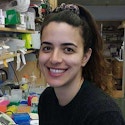
Marino Pagan, Ph.D.
Marino Pagan is a postdoctoral research associate at Princeton University. He received his B.S. in computer engineering and his M.S. in control engineering from Scuola Superiore Sant’Anna and University of Pisa in Italy. He completed his Ph.D. in neuroscience at University of Pennsylvania in the laboratory of Nicole Rust, where he studied the neural circuits of visual object search in macaque monkeys using electrophysiology and computational modeling.
Read More

Kartik Pattabiraman, M.D., Ph.D.
Kartik Pattabiraman is an Alfred J. Solnit Integrated Psychiatry Fellow at the Yale Child Study Center. He received his Sc.B. from Brown University and M.D. and Ph.D. from University of California, San Francisco. He completed his Ph.D. thesis work in the laboratory of John Rubenstein studying the gene regulatory networks involved in early cortical patterning.
Read More

Zhuzhu Zhang, Ph.D.
Zhuzhu Zhang is a postdoctoral research fellow at the Salk Institute for Biological Studies working with Joseph Ecker and Edward Callaway. She is broadly interested in understanding the epigenetic and transcriptional regulation in the mammalian brain at single-cell resolution, using both experimental and computational approaches. Specifically, Zhang studies the neuronal cell types and functions in the brain and investigates their molecular signatures in the context of neural pathways and circuits by developing and deploying novel single cell multi-omics approaches. She plans to further investigate cell type- and circuit-specific epigenetic regulations in normal postnatal brain development and in neurodevelopmental disorders and explore epigenetic mechanisms that underlie genotype-environment (GxE) interaction.
Read More

2020
Neir Eshel, M.D., Ph.D.
Neir Eshel is an instructor in the Department of Psychiatry and Behavioral Sciences at Stanford University. He received his A.B. from Princeton University, M.S. from University College London, and M.D./Ph.D. from Harvard University.
Read More

Ranmal Aloka Samarasinghe, M.D., Ph.D.
Ranmal Aloka Samarasinghe is a clinical instructor at the University of California, Los Angeles (UCLA). He received his M.D. and Ph.D. from the University of Pittsburgh in 2013. He performed his thesis research in the laboratory of Donald DeFranco, where he studied nongenomic actions of glucocorticoid hormones in neural progenitor cells.
Read More

Toni-Lee Sterley, Ph.D.
Toni-Lee Sterley is a postdoctoral associate at the University of Calgary. She completed her doctoral training in the laboratory of Vivienne Russell at the University of Cape Town. Her doctoral thesis used rodent models to investigate the influences of early life stress and genetic predispositions in the development of attention-deficit/hyperactivity disorder or depression, specifically looking at roles for glutamatergic and GABAergic transmission in observed behavioral phenotypes.
Read More

2019
Nicholas Frost, M.D., Ph.D.
Nicholas Frost is an adjunct clinical instructor at the University of California, San Francisco. He received his M.D. and Ph.D. at the University of Maryland School of Medicine. There, his thesis work in the laboratory of Thomas Blanpied focused on the regulation of actin polymerization within dendritic spines, utilizing super-resolution microscopy to track single molecules of polymerized actin moving within living neurons.
Read More

Ethan Greenblatt, Ph.D.
Ethan Greenblatt is an assistant professor at the University of British Columbia. He received his doctoral training in the laboratory of Ron Kopito at Stanford University, where he worked on cellular protein quality control mechanisms, showing a central role for membrane ‘pseudo’-proteases in the proteasomal degradation of misfolded secretory proteins.
Read More

Fenna Krienen, Ph.D.
Fenna Krienen is a postdoctoral fellow at Harvard Medical School. She received her B.A. from the University California, Berkeley and completed her doctoral studies at Harvard University with Randy Buckner, where she used noninvasive neuroimaging to infer principles of corticocortical and corticocerebellar network architecture in the human brain.
Read More

J. Elliott Robinson, M.D., Ph.D.
J. Elliott Robinson is an assistant professor at Cincinnati Children’s Hospital, University of Cincinnati School of Medicine. He completed his M.D. and Ph.D. in the Medical Scientist Training Program at the University of North Carolina (UNC) at Chapel Hill. His doctoral dissertation work, which was co-advised by C.J. Malanga (UNC) and Markus Heilig (National Institute on Alcohol Abuse and Alcoholism), investigated how the A118G mu opioid receptor gene polymorphism moderates dopaminergic and behavioral responses to alcohol and abused opioids.
Read More

Hume Stroud, Ph.D.
Hume Stroud is an assistant professor at the University of Texas Southwestern Medical Center. He received his doctoral training in the laboratory of Steve Jacobsen at the University of California, Los Angeles. His work focused on the regulation of DNA replication and transposon silencing in the model plant Arabidopsis thaliana. For his postdoctoral training, Stroud went on to join the laboratory of Michael Greenberg at Harvard Medical School, where he utilized genomic approaches to understand the regulation and function of DNA methylation in neurons in the developing brain.
Read More

2018
Reza Kalhor, Ph.D.
Reza Kalhor is an assistant professor at Johns Hopkins University. His lab develops new tools using a variety of strategies, including molecular engineering, CRISPR-based manipulation and computational approaches. These tools are then applied to problems in mammalian development, neurobiology and synthetic biology.
Read More

Xin Tang, Ph.D.
Xin Tang is an assistant professor at Harvard Medical School. He studies genetic and environmental factors regulating synaptic signal transmission, with a focus on KCC2 molecular pathways and the role of KCC2 dysregulation in autism spectrum disorder.
Read More
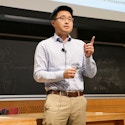
Donna Werling, Ph.D.
Donna Werling is an assistant professor at the University of Wisconsin–Madison. Her research is focused on understanding the key neurobiological mechanisms involved in the etiology of ASD and other neurodevelopmental disorders, including genetic and developmental processes, with a focus on the role of sex-differential biology in modulating risk.
Read More

Peng Zhang, Ph.D.
Peng Zhang is interested in the role of extracellular matrix glycans in shaping synaptic properties and brain function. During his Ph.D., Zhang studied the role of O-mannosylated glycans on a-dystroglycan in regulating binding to laminin, and the assembly of the extracellular matrix, which is an underlying pathological mechanism in congenital muscular dystrophies. Subsequently, Zhang extended his interests in this area to the field of synaptic development in Ann Marie Craig’s laboratory. He discovered that neurexins (a class of synaptic adhesion molecules) are modified by a rare type of glycan called heparan sulfate, which is a constituent of the extracellular matrix.
Read More
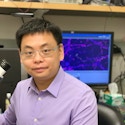
2017
Ryan Doan, Ph.D.
Ryan Doan is an Instructor at Boston Children’s Hospital. Doan’s research focuses on the important issue of understanding why many individuals with neurodevelopmental disorders lack a genetic diagnosis, both in clinical and research settings. The overall aim of his laboratory is to develop and implement a streamlined approach combining evolutionary and human genetics to discover novel noncoding mutations that can be targeted in a clinical diagnostic setting.
Read More

Michael Hart, Ph.D.
Michael Hart is a research associate at the University of Pennsylvania and a member of the Autism Spectrum Program of Excellence (ASPE). Hart’s research utilizes the nematode C. elegans to study and model disease genes and disease variants associated with autism spectrum disorder.
Read More

Rebecca Muhle, M.D., Ph.D.
Rebecca Muhle is an assistant professor at Columbia University. Muhle works with individuals with neurodevelopmental conditions such as autism spectrum disorder (ASD) and uses animal and cellular model systems to uncover the biological changes that occur when genes associated with ASD are disrupted.
Read More

Gabriela Rosenblau, Ph.D.
Gabriela Rosenblau is an assistant professor of cognitive neuroscience in the psychology department at George Washington University. Her research combines computational models with functional neuroimaging to further our mechanistic understanding of typical and atypical human development and learning.
Read More

Stephanie Rudolph, Ph.D.
Stephanie Rudolph is an assistant professor at Albert Einstein College of Medicine. Rudolph uses a combination of genetic, viral, in vitro and in vivo techniques to assess neuromodulatory system interactions with, and effects on, cerebellar non-motor functions in mouse models of autism spectrum disorder.
Read More

Seth Shipman, Ph.D.
Seth Shipman is an assistant investigator at the Gladstone Institute and an assistant professor in bioengineering and therapeutic sciences at the University of California, San Francisco (UCSF). His lab engineers new functions into living cells to understand the fundamental biology of developing systems, particularly the brain.
Read More

Tingting Wang, Ph.D.
Tingting Wang is an assistant professor in the Department of Pharmacology & Physiology at Georgetown University. Her lab investigates the molecular mechanisms that underlie the homeostatic control of the nervous system and studies how impaired homeostatic plasticity may contribute to brain disorders, including autism.
Read More

2016
Sung Eun (Samuel) Kwon, Ph.D.
Sung Eun “Samuel” Kwon is an assistant professor in the Department of Molecular, Cellular and Developmental Biology at the University of Michigan, Ann Arbor. Kwon focuses on cellular, molecular and circuit mechanisms underlying sensory cortical plasticity in both health and conditions of neurocognitive disorders using in vivo imaging, electrophysiology, opto- and pharmaco-genetics, and behavior in the mammalian brain.
Read More

Michael Gandal, M.D., Ph.D.
Michael Gandal is an assistant professor at University of California, Los Angeles, and at the Semel Institute for Neuroscience and Human Behavior. His group uses systems-level genetic, genomic and transcriptomic approaches to understand the neurobiological mechanisms underlying autism, schizophrenia and related neurodevelopmental psychiatric disorders.
Read More

Yun Li, Ph.D.
Yun Li is an assistant professor at the University of Toronto and a scientist at the Hospital for Sick Children. Li’s laboratory utilizes a combination of pluripotent stem cell technology, genome editing and three-dimensional organoid culture systems to understand how the human brain forms, what makes it unique from that of other species and how disorders like autism impact human brain development and function.
Read More

Tomasz Nowakowski, Ph.D.
Tomasz Nowakowski is an assistant professor at the University of California, San Francisco. Nowakowski pioneered the use of single cell RNA sequencing to study the heterogeneity of cellular populations in the developing brain. His research focuses on understanding how the human genome reproducibly generates diverse neuronal populations and how genome abnormalities affecting these developmental processes cause developmental neuropsychiatric disorders like autism.
Read More

Rui Peixoto, Ph.D.
Rui Peixoto is an assistant professor at the University of Pittsburgh. His laboratory is focused on investigating the disruption of basal ganglia maturation by cortical hyperactivity in autism spectrum disorder.
Read More

Aakanksha Singhvi, Ph.D.
Aakanksha Singhvi is an assistant member at the Fred Hutchinson Cancer Research Center. Singhvi’s laboratory focuses on understanding — at both a molecular and mechanistic level in C. elegans — how glia and neurons communicate with each other to regulate sensory perception, neuronal physiology, neural circuit activity, memory formation and animal behavior in both healthy and neurological disease states.
Read More

2015
Renata Batista-Brito, Ph.D.
Renata Batista-Brito is an assistant professor at Albert Einstein College of Medicine. Her lab combines cell-type specific manipulation of neuronal activity, in vivo electrophysiology, in vivo 2-photon imaging and behavioral analysis in order to understand how the postnatal developmental of inhibition shapes sensory representation in the mature brain and how this process is altered in neurodevelopmental disorders.
Read More

Graham Diering, Ph.D.
Graham Diering is an assistant professor at University of Carolina, Chapel Hill. He studies the molecular mechanisms of synaptic plasticity, with a particular interest in sleep. Using mouse models of human disease as well as primary cultured neurons, Diering applies his work to understanding and treating neurodevelopmental disorders, including autism and intellectual disability. He broadly studies biochemistry, pharmacology, animal behavior and genetics.
Read More

Sung Han, Ph.D.
Sung Han is an assistant professor at the Salk Institute for Biological Studies. His lab is interested in dissecting neural circuits that transmit aversive sensory signals to the brain.
Read More

Keren Haroush, Ph.D.
Keren Haroush is an assistant professor at Stanford University. Her laboratory studies the mechanisms by which highly complex behaviors are mediated at the neuronal level, mainly focusing on the example of dynamic social interactions and the neural circuits that drive them.
Read More

Holly Stessman, Ph.D.
Holly Stessman is an assistant professor at Creighton University, where she leads a research group identifying and functionally characterizing genetic variation that contributes to ASD disease biology.
Read More

Jason Yi, Ph.D.
Jason Yi is an assistant professor in the Department of Neuroscience at Washington University School of Medicine in St. Louis. His laboratory is broadly interested in the molecular pathways that shape nervous system development and function, with the ultimate goal of understanding how dysfunction in these pathways contributes to disease.
Read More
